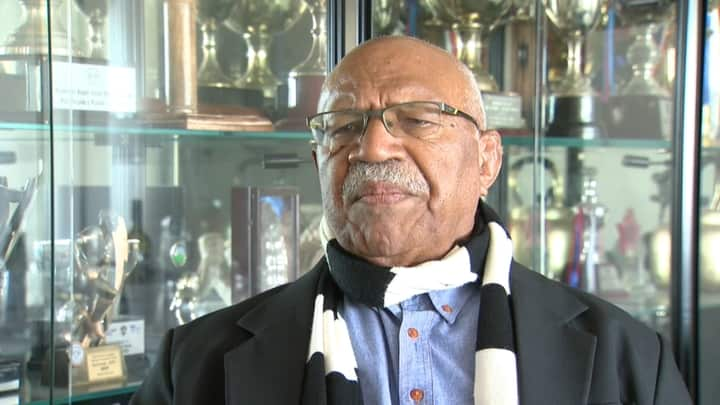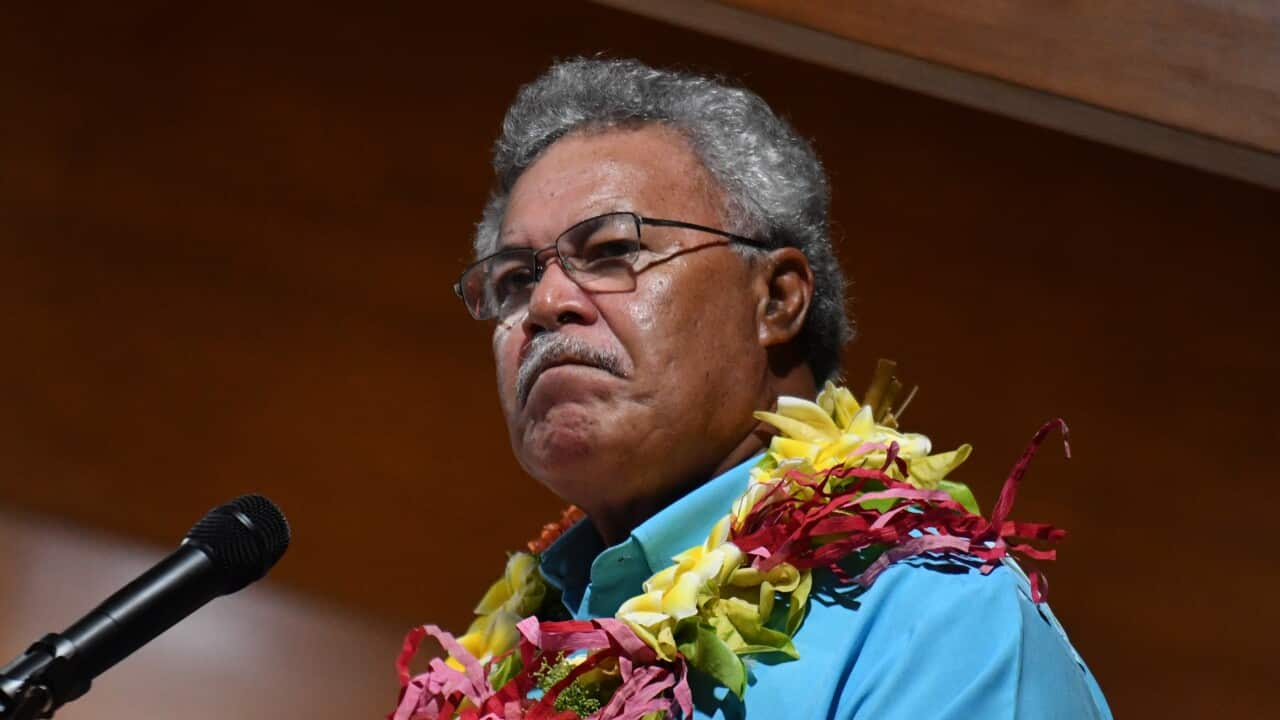The former two-time coup leader hoping to return as Fiji’s prime minister has ruled out a security pact with China if he wins government, saying it was time his country returned to its "comfortable niche" with Australia.
Sitiveni Rabuka has also flagged he will be asking Canberra for greater freedoms for Fijians working in Australia.
Mr Rabuka made the comments in a wide-ranging interview with SBS News during a visit to Melbourne to drum up local community support for the upcoming election.
The former military leader, who led his country for seven years following two military coups in 1987 which he instigated, also criticised his political opponent and incumbent Prime Minister Frank Bainimarama for not learning the lessons of previous coups.
He said he had “moulded better” than Mr Bainimarama, who was democratically elected in 2014 after staging a military coup in 2006.
"The biggest thing is probably he (Bainimarama) does not believe that he did anything wrong," Mr Rabuka said.
"So he's not seeing the need for restitution … or reparation on his side, whereas I have gone through that, and I know the benefits - you get rid of the burden of blame.
"A lot of people blame you … you must feel their hurt, even if you don't feel you tried to hurt them."

Sitiveni Rabuka, a former Fijian prime minister and leader of two military coups, is vying for the top job again.
“The impact it has on the voting population as well, is quite concerning that, you know, we tend to keep voting in former coup leaders ... back into power; and thereby legitimising this idea that a coup is an alternative way to bring about some change where democracy or democratic ways might not be the best,” he told SBS News.
On China, Mr Rabuka said he did not believe Beijing would have "too much influence"in the Pacific region, citing the new Labor government's swift focus on the region since coming to power.
"The whiplash reaction that we have now had from Australia and New Zealand and further abroad in America, and the US policies in the region are now changing because of that," he said.
"We are trying to just get back to the cordial international relationships we have had in the past, and that included our own relationship to China.
"Now we have to reassess our associations and go back to those that have moulded the character of the nations in the western style of democracy, the British style of democracy and the British system. That's the kind of democracy that we're trying to emulate in the Pacific region."
He would not be seeking a security pact with China - akin to the one inked by the Solomon Islands - if he wins in the upcoming poll.
"We appreciate what China has done in the past. And that’s it," Mr Rabuka said, saying China had filled a void left by Australia following the 1987 coups.
"The pendulum has now come back and we should now be getting to our comfortable niche with Australia and Australia should also acknowledge that, not only for Fiji but all the other Pacific Island territories."
Mr Rabuka has also signalled he would be seeking "top level discussions" with Australia to improve the seasonal worker program, including restrictions on the movement of Fijian workers to different regions, working hours and their salary deductions.
"We have to make sure that … they will not be blackmailed into accepting employment at a lower wage rate, just to get employment just to stay here."
Mr Kant says it will be a tight election race, with the cost of living, the economic impact of the Ukraine-Russia conflict and COVID-19 - all major factors that will influence the vote.
"The current government party has been in power for almost two decades now," he said.
"Given that he's been in politics for so long, and he's been a prime minister before, (Mr Rabuka) has name recognition. He also has, sort of, very ardent followers."
The 73-year-old retired commander of the Fiji Military Forces will be running as a prime ministerial candidate this time as leader of the People's Alliance Party, instead of the Social Democrat Liberal Party (SODELPA).
He served in the role of Fiji's prime minister for seven years until 1999.











